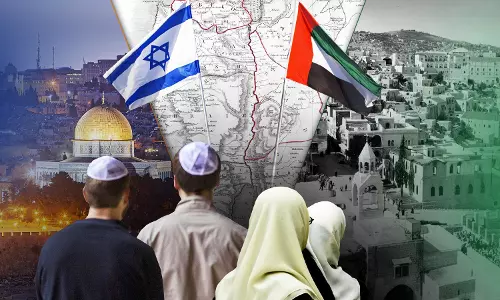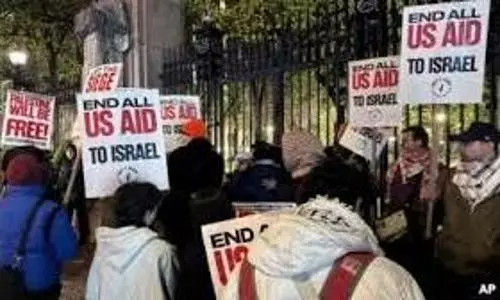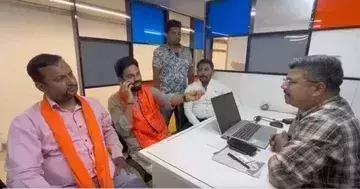
Live screen Ram temple inauguration: Hindu activists to Bengaluru malls
text_fields“During Christmas, you put up a Christmas tree, right? Similarly, you install a model of the Ram Mandir in your mall. We’ll provide you with the model. You keep it there for fifteen days,” in a video, a man in a saffron shawl is seen requesting the manager of Garuda Mall—which is situated in the centre of Bengaluru's business district
Anil Shetty, a BJP member, is the man wearing the shawl. However, he tells The News Minute that he would prefer to be called a Hindu Swayamsevak since he “does not wish to associate politics with the inauguration of the Ram Mandir.”
Anil himself posted a video in which he and several other "swayamsevaks" are seen instructing the Garuda Mall management to schedule a live broadcast of the mandir's opening for January 22.
Anil said that they were going to ask other malls in Bengaluru to follow suit and that they had started by contacting Garuda Mall, which is owned by BJP MLA Uday Garudachar. During the next few days, Anil's swayamsevaks will be visiting other malls, including Forum Mall, Orion, and others, to request that they provide live broadcasts of the inauguration of the Ram temple.
“This is an auspicious time for India. Malls in the country celebrate Christmas, right? So why can’t they do something for this important moment as well?” asks Anil, adding that they are not forcing malls to do this but are merely “requesting.”
On January 22, the temple will be inaugurated, and representatives of several political parties, along with Prime Minister Narendra Modi and Chief Minister Yogi Adityanath of Uttar Pradesh, are expected to attend.
Additionally, BJP units in a number of states have prepared special plans for worshippers who plan to visit the temple following its consecration.
Built in 1528 by Mir Baqi, the commander of Mughal emperor Babur, Babri Masjid was demolished on December 6, 1992, by kar sevaks affiliated with Hindu majoritarian groups. The demolition, which was carried out as a result of a coordinated Ram Janmabhoomi movement, sparked months of communal unrest that claimed over 2,000 lives. Since 1885, religious leaders and Hindutva groups have disputed the site of the Babri Masjid, believing it to be the birthplace of Lord Ram in Ayodhya, or Ram Janambhoomi.
When Gopal Visharad Sharma petitioned the Faizabad district court in 1950 to be allowed to worship the Ram Lalla idols that had been installed there in 1949, a legal battle broke out. The three-way division of the disputed region between the Sunni Waqf Board, the Nirmohi Akhara, and Ram Lalla was ruled by the High Court on September 30, 2010, with a 2:1 majority.
Nine years later, in 2019, the Supreme Court ordered the UP government to give five acres of property to Muslims so they could construct a mosque, and it gave the full 2.77 acres of contested land to the deity Ram Lalla. Even though the Supreme Court called the demolition of the mosque "an egregious violation of the rule of law," the decision was criticised for taking the "faith over fact" stance and giving legal ownership of the land to the people who carried out the demolition.












